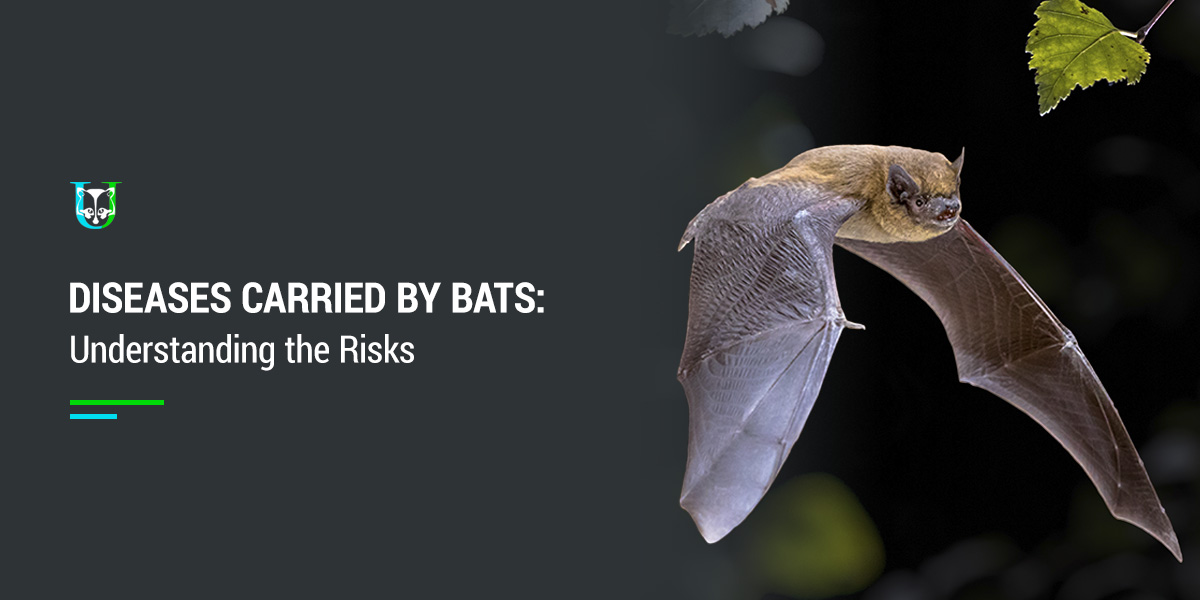
Are you hearing flapping sounds at night? Is there an odd odor coming from your wall or ceiling? You might have bats living in or around your property. Bats carry various diseases, some of which can pose risks to humans, and while not all bats carry diseases, many have transmitted viruses, bacteria and parasites. Understanding the risks is essential for public health.
What Diseases Can Bats Carry?
The most common disease that is associated with bats is rabies, a fatal viral disease spread through bites and scratches from an infected animal. There are many other diseases that they carry, including:
- Histoplasmosis: This fungal disease comes from spores in bat feces and attacks the respiratory system with symptoms similar to pneumonia.
- Leptospirosis: This bacterial infection is spread to humans through contaminated urine, and causes fever, severe general malaise, muscular pain, and conjunctival suffusion.
- Salmonella: This bacteria is spread through contaminated feces and can cause, fever, diahhrea, nausea, vomiting, and stomach pain.
Do Bats Cause Harm to Humans?
Yes, human interactions with bats can sometimes lead to health risks such as diseases. Accidental encounters can occur, particularly when bats roost near human dwellings. A bat found in a place where they should not live, like in your home, or exhibiting abnormal behavior like being active during the day could be a sign of rabies.
How Do Bats Transmit Rabies to Humans?
Rabies gets transmitted through the saliva of infected animals, primarily through bites and scratches. To prevent rabies transmission to humans after being bitten or scratched, you must get prompt medical attention. Post-exposure prophylaxis (PEP) treatment is essential.
Can Bats Spread Diseases Without Biting?
Rabies usually requires direct contact with an infected bat. There is also a possibility of getting diseases from guano, which is bat excrement, and urine. Guano can harbor fungal spores that cause histoplasmosis, for instance.
Request Services to Remove Bats Today
Urban Jungle Wildlife Removal offers services to trap and remove active wildlife from clients’ homes or commercial properties in Houston, Austin and San Antonio. We also offer professional wildlife exclusion services to prevent bats from coming back.
We know that bats provide valuable ecological services but can also pose serious health risks to humans. Contact us today to remove these nocturnal animals from your property.
